- From Faith Current: “The Sacred Ordinary: St. Peter’s Church Hall” - May 1, 2023
- A brief (?) hiatus - April 22, 2023
- Something Happened - March 6, 2023
Being a fan of both The Beat Brothers and doomed playwright Joe Orton, Up Against It has always been interesting to me. Brian Epstein rejected it, of course he did; Orton’s outlaw sexuality was a total wrong fit for the Beatle-buying public circa 1967—but the mixing of two such strong, really important flavors from Swinging London is fascinating.
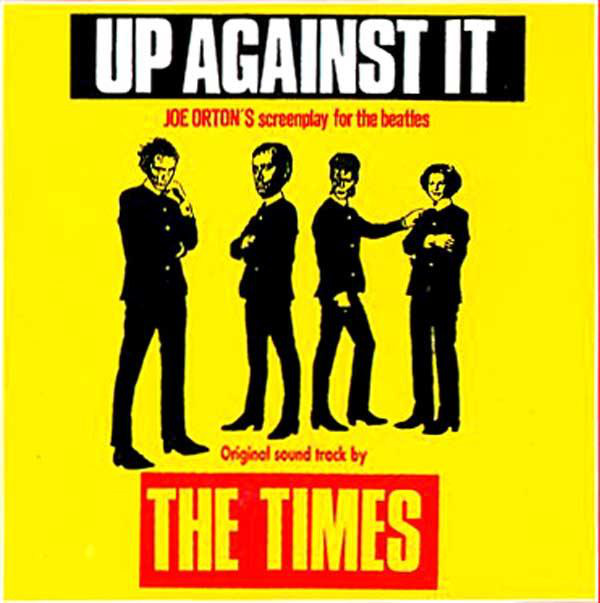
In 1997, BBC Radio 3 presented a 90-minute adaptation of Up Against It. The cast included such luminaries as Leo McKern and Fawlty Towers‘ Prunella Scales. Having stayed up until 2am listening, I can attest that the finished product is grippingly strange.
The segments are pasted below. But before you listen, a slight “trigger warning”: The screenplay is marred by Orton’s enduring horror of the female, which has not aged well at all. In Up Against It, women are the maintainers of social norms, and as such come in for rough treatment; even the sympathetic women feel distinctly hollow. This is probably not the place to discuss this in depth, but certainly back then (and perhaps still today) there was a strain of male homosexual culture that seemed to be organized around anti-female lines. A horror of birth; a sense of basic female duplicity; rebellion against the mother? I can’t say, but whenever I encounter it, I’m reminded that the patriarchy’s most powerful trick is to turn its victims against each other.
(H/t to Stephen Kroninger.)

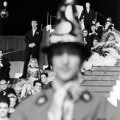

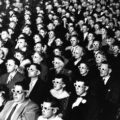
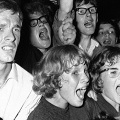
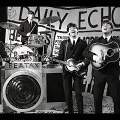
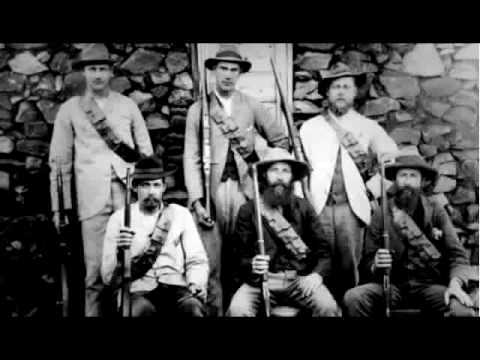
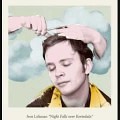
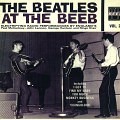
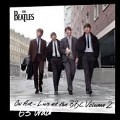


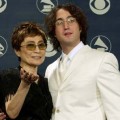
I confess I don’t know much about this chapter in Beatles history. According to wikipedia, Orton had a meeting scheduled with Richard Lester? Was the project moving forward without the Beatles?
.
I wonder if the Beatles were being nudged towards becoming film personalities. Most musical acts eventually made the transition to movies. I wonder if management was assuming the Beatles would become a singing Ritz Brothers (waiting for the right script) and the Beatles were resisting this, instead insisting “No, we really just want to make records.”
Sam, according to Wikipedia, a producer was hoping to pair Orton with Lester and (gulp) Mick Jagger. It’s an interesting idea; but for all the script’s menace and sexuality, it’s got a dreamlike quality that is the opposite of the “pissing against a gas station wall” Rolling Stones.
Orton was in tune with an element of Beatledom, but not one that could’ve been spoken before 1972 or so. He was tapping into the secret sexual polarities of the Fabs, that polymorphous perversity that peeps out from behind the sweetness — and that probably made Brian Epstein very nervous indeed. But it’s intriguing to think that if the Beatles had survived into the glam-and-coke era, whether this covert aspect would’ve been more overt. Orton was ahead of his time; and this out-of-jointness is what made the combination of him and Halliwell so unhappy, I think. By 1970, perhaps both of them could’ve had happy, separate lives; but in the 50s and into the 60s, there is a “two men the lifeboat” feeling with them that almost guaranteed some kind of unhappiness.
I think a film career was probably on many people’s minds within Beatles circles in 1966-67.
If the Beatles had survived into 1972 I reckon the battle between Paul’s “old showbiz” and John’s “new showbiz” (to borrow your terminology Mike) would have reached fever pitch. John would have wanted to lay everything bare POB style and Paul would have wanted to keep things going the same way forever. I don’t think John would’ve been able to stand observing the frankness of Bowie, Elton and the rest without making at least some effort to keep up.
Although it’s interesting that even John was coy about sexuality in his songs – right up ’til the very end. Even POB barely goes there. I think it’s very, very hard for people to entirely transcend the influences they grew up with and at heart the Beatles were Tin Pan Alley guys shot through with Chuck Berry. They were on the cusp of the new age (because they caused it) but not entirely OF it because transitional figures never are. It’d be like expecting Beethoven and Wagner to fully embrace dissonance, or James Brown to swap the sharp suits for P-Funk wackiness.
This is good.
I think the only way the group would’ve survived was by long breaks, allowing the members to pursue their different visions when they differed, and then coming together when they didn’t. So no Beatles from 1970-2, then Beatles in 1973-6, then no Beatles until 1980, and so forth.